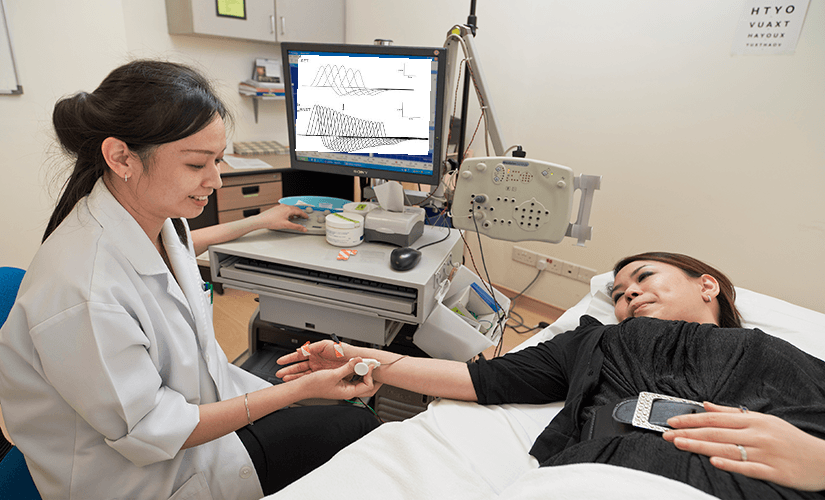Repetitive Nerve Stimulation Test (RNST)

RNS is an electrodiagnostic test which is used to assess the neuromuscular junction (NMJ).
RNS is performed when you have muscular fatigue symptoms. It is commonly done to diagnose neuromuscular junction disorders such as Myasthenia Gravis (MG) or Lambert-Eaton Myasthenic Syndrome (LEMS).
The response from your nerves in reaction to a repeated series of electrical stimuli will be recorded using a recording electrode which is placed on the tested muscle. You may be asked to exercise the tested muscle, for a few seconds to minutes, in between the series of electrical stimulation. Several nerves and muscles may be tested depending on your symptoms.
Please stop medication (if already started for Myasthenia Gravis) 24 hours prior with your referring doctor's consent. Do wear loose- fitting clothing so that your hands, shoulders and neck are easily accessible for examination.
Facilities
-
Satva Neuro Clinic
Naroda :
Satva Neuro Clinic
208- 209, Galaxy Arcade,
Near Galaxy Cinema,
Naroda, Ahmedabad-382330, Gujarat.
For Appointments : +91 98240 28787
SG Highway, Sola :
Satva Neuro Clinic
Satva Neuro Clinic- Dr Samir Patel
103, Empire Doctor House,
Near Kargil Petrol Pump,
SG Highway, Sola, Ahmedabad - 380060, Gujarat.
For Appointments : +91 90990 28787
OPD Hours
Mon-Sat: 5.30 PM - 7.30 PM
E-Mail
satvaneuro@gmail.com
